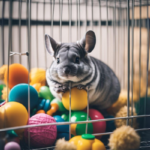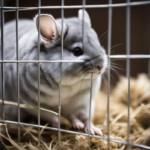If you have a chinchilla or are looking to adopt one, allergies are something to watch out for. Chinchillas may not show any symptoms of allergies until they already exist, making it important for owners and caregivers to pay attention to changes in their pet’s behaviour or health.
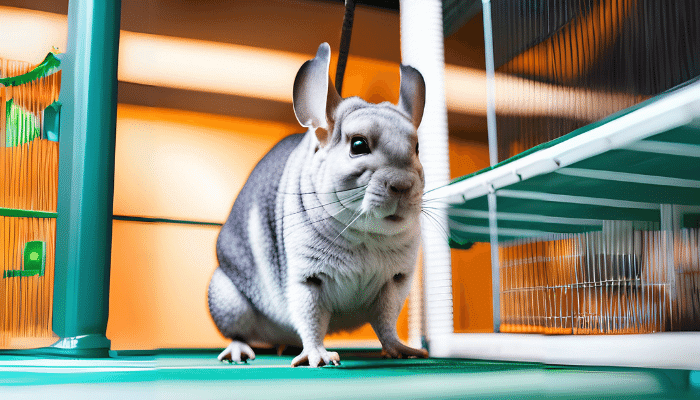
In this blog post, we’ll look at what causes chinchilla allergies, as well as how to prevent them from occurring and the best way to care for them if they do happen. By learning about common allergic triggers and recognising signs of an allergy attack early on, you can keep your beloved pet healthy and safe from harm.
What is a Chinchilla Allergy
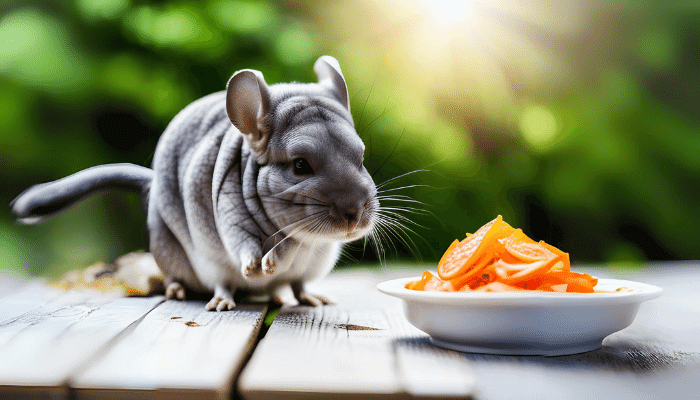
If you are considering owning a chinchilla, it’s important to be aware of the potential for chinchilla allergies. These allergies occur when the immune system reacts to the proteins found in a chinchilla’s fur or saliva. Though uncommon, those with a history of asthma or allergies may be more susceptible to developing chinchilla allergies.
Some common symptoms include itchy eyes, a runny nose, and hives. However, with proper care and prevention, chinchilla allergies can be managed. Regular grooming and cleaning of the chinchilla’s cage can help reduce the amount of allergens present.
Additionally, it is important to wash your hands after handling your pet and avoid touching your face. owning a chinchilla can still be a healthy and enjoyable experience.
Common Symptoms of a Chinchilla Allergy
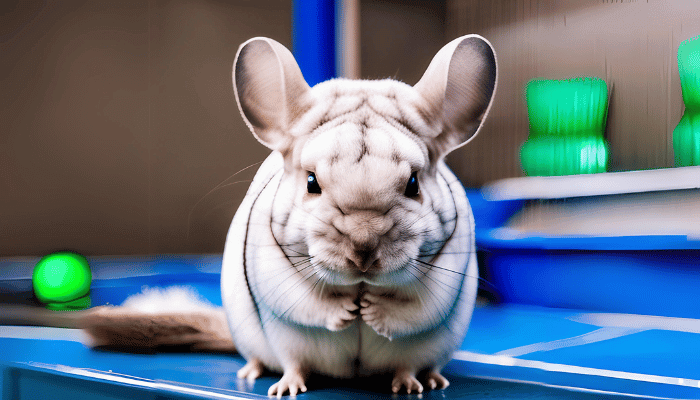
Common symptoms of a chinchilla allergy include runny nose, sneezing, and itchy eyes. Fortunately, there are steps you can take to prevent and manage these symptoms. Regularly cleaning your chinchilla’s enclosure and minimising their contact with your belongings can help reduce exposure to allergens.
It’s also important to stay in tune with your own health and seek medical attention if necessary. By staying informed and taking proactive steps, you can still enjoy the companionship of your chinchilla while prioritising your health.
Steps to Take in Preventing an Allergic Reaction

It’s important to adopt good hygiene practices, such as washing your hands before and after interacting with chinchillas and regularly cleaning their cages to minimise exposure to allergens. When handling or playing with your chinchilla, avoid contact with your face and clothes to prevent reactions.
In addition, paying attention to your own health and susceptibility to allergies and seeking medical advice can also be helpful in managing chinchilla allergies. By being proactive and taking proper precautions, you can still enjoy the company of these cute creatures without putting your health at risk.
Tips for Home Care When Dealing with Chinchilla Allergies

If you or someone in your home suffers from chinchilla allergies, it’s important to take proactive steps to manage the situation.
It is important to note that allergies are not caused by chinchilla fur but rather by proteins in their urine and saliva. The best way to prevent chinchilla allergies is by keeping your pets in a clean environment, and if allergic symptoms persist, consult a vet for tips to deal with the allergies. Additionally, allergy medication and antihistamines can help control allergy symptoms when handling chinchillas.
Be sure to wash your hands thoroughly with soap and water after handling your chinchilla to prevent cross-contamination and to avoid inhaling dust from their bedding.
Finding the Right Treatment for Your Allergy
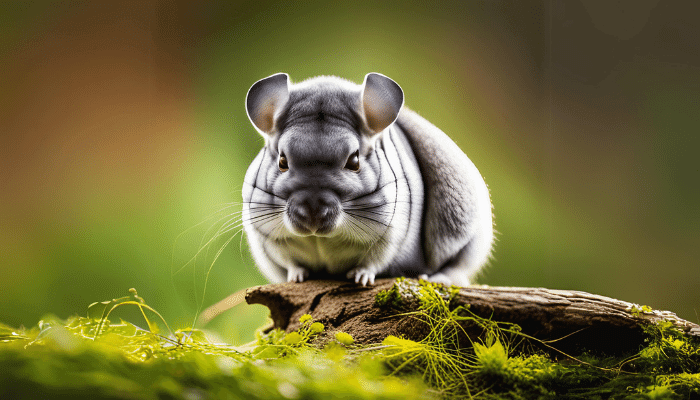
If you suffer from chinchilla allergies, you know how important it is to find the right treatment for your condition. Chinchilla can cause uncomfortable allergy symptoms in some people. To ensure your health and well-being, it’s important to take preventative measures and care tips to reduce the risk of allergic reactions.
Some common ways to alleviate chinchilla allergies include keeping the pets in a separate designated area, washing your hands frequently, and investing in air purifiers. If you’re experiencing severe symptoms, it may be necessary to consult with an allergist to explore various treatment options.
What to Do in an Emergency Situation if You Suspect an Allergic Reaction
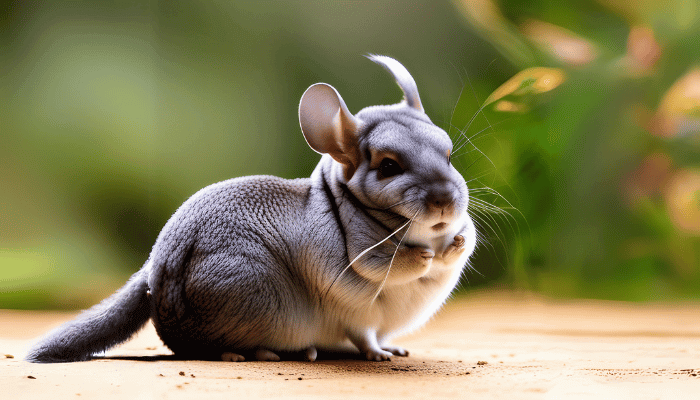
Although chinchillas themselves are not known to be allergenic, their bedding, food, and dust baths can trigger allergic reactions in some pet owners. To prevent and care for chinchilla allergies, it’s crucial to carefully choose hypoallergenic bedding, clean their environment regularly, and wear protective gear such as gloves and a mask when handling chinchilla-related items.
However, in an emergency situation where an allergic reaction is suspected, it’s important to act quickly and seek medical help. Symptoms such as difficulty breathing, swelling, and hives should never be ignored and require immediate attention. By being prepared and informed about chinchilla allergies, pet owners can provide a safe and healthy environment for both themselves and their furry friends.
Conclusion
Owning a chinchilla can be a wonderful experience, but it’s important for pet owners to be aware of potential allergies. By following proper preventative measures, such as maintaining good hygiene practices and seeking medical advice if necessary, you can still enjoy the companionship of these adorable creatures without putting your health at risk.
Remember to always monitor your own health and take necessary precautions to prevent allergic reactions when interacting with chinchillas. With the right care and attention, both you and your furry friend can live happily together in harmony.
Frequently Asked Questions
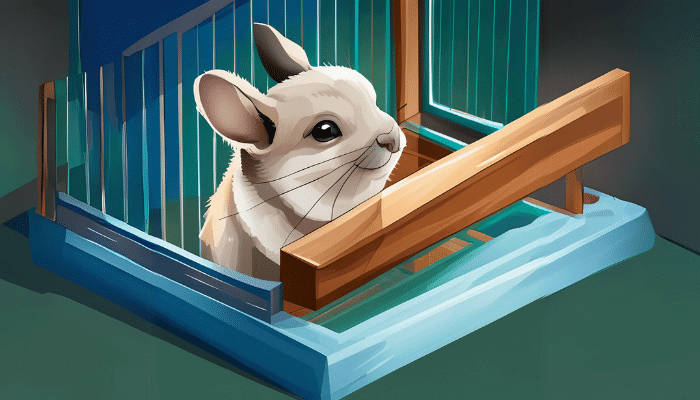
What are the signs of a chinchilla allergy?
Some common signs of chinchilla allergies include sneezing, watery eyes, skin irritation, and difficulty breathing. These symptoms may arise from exposure to chinchilla fur, urine, or saliva.
How can I prevent a chinchilla allergy from occurring?
To prevent chinchilla allergies, it’s important to adopt good hygiene practices, such as washing your hands before and after interacting with chinchillas and regularly cleaning their cages. Avoiding contact with your face and clothes when handling or playing with chinchillas can also help reduce the risk of allergic reactions.
Can antihistamines be used to treat a chinchilla allergy?
Yes, antihistamines can be used to treat the symptoms of a chinchilla allergy. However, it’s important to consult with a medical professional before taking any medication and follow their recommended dosage.
What should I do if I think my chinchilla has an allergy?
If you suspect that your chinchilla is experiencing an allergic reaction, it’s important to consult with a veterinarian immediately. They can provide insight into the possible causes of the allergy and recommend appropriate treatment options.
What are the most common chinchilla allergens?
The most common chinchilla allergens are proteins found in their urine and saliva. These can become airborne when handling or cleaning the chinchilla’s cage, causing allergic reactions in some people.
Are there any medications that can help with a chinchilla allergy?
Yes, there are medication options that can help with a chinchilla allergy. These include antihistamines, decongestants, and corticosteroids. It’s important to consult with a medical professional before taking any medication to ensure it is safe and effective for your specific allergy symptoms.
Can children be allergic?
Yes, children can also be allergic to chinchillas. It’s important for parents to monitor their child’s interactions with the pet and take necessary precautions to prevent allergic reactions. Consulting with a paediatrician is recommended if allergies are suspected in children. So, it’s best to keep an eye on your child.
Is there anything else I should know about chinchilla allergies?
It’s important to note that chinchilla allergies are not always immediate and can develop over time. If you notice any changes in your health or symptoms while interacting with your pet, it’s best to consult with a medical professional for proper diagnosis and treatment. Additionally, some people may have mild allergies that do not require medical attention but can still cause discomfort.
